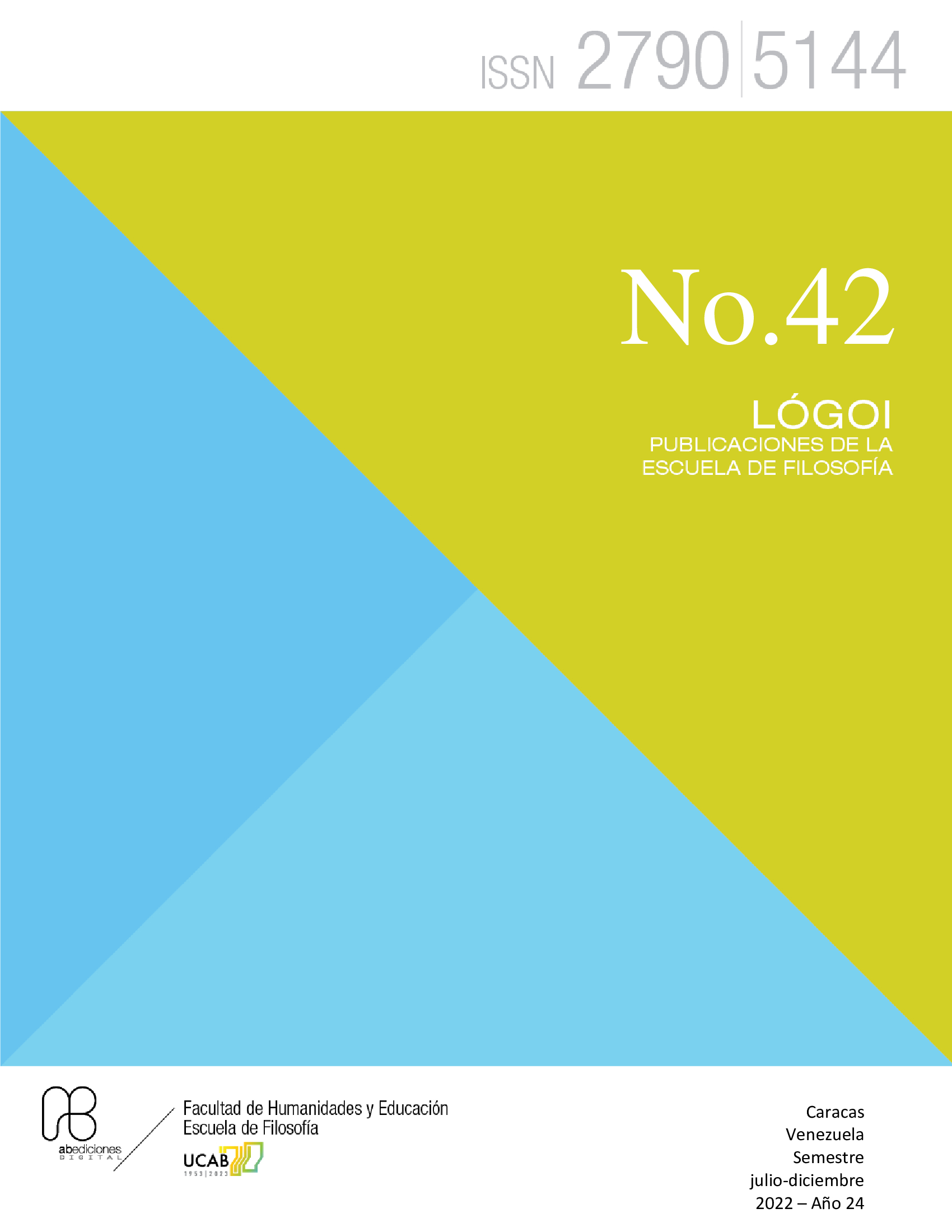Rheology and anthropology: an invitation to investigate, with metaphysical novelty, the human reality
DOI:
https://doi.org/10.62876/lr.vi42.5752Keywords:
experience, noology, structuralism, Xavier Zubiri, realismAbstract
Dissatisfied with the available philosophical anthropologies, in this paper we propose the outline of a fundamental anthropology and invite to continue the task. The critique of traditional anthropologies is common to other authors and helps us to justify the elaboration of a new anthropology which we call "rheological". Its first objectives are 1) to show that the human res is “physical” and therefore not “dual” as almost all anthropologies have believed, and 2) to show that if there is something fundamentally human it is not in the classical categories of “psyche”, “reflexivity”, etc., but in what we call “experiencing”, i.e. physically tasting reality, something that the rest of the res do not do. This is a metaphysical and not a "psychological" proposal. Therefore, we will briefly explain what rheology is and, using it as a tool; we will outline some guidelines that delimit a future rheological investigation of human reality.
Downloads
References
Buber, Martín. ¿Qué es el hombre? (2ª ed.), (Ciudad de México: Fondo de Cultura Económica; 2018).
Coreth, Emerich. ¿Qué es el hombre? (6ª ed.), (Barcelona: Herder; 1991).
Ferraz, Antonio. Zubiri: el realismo radical, (Madrid: Cincel; 1988).
González, Antonio: “Hacia una fundamentación de las ciencias sociales”, En: Antonio González (ed.), Para una filosofía liberadora, (San Salvador: 1995): 65-96
Gorostiza, José. “Muerte sin fin”, En: J. Gorostiza [E. Ramírez (coord.)], Poesía y poética (2ª ed.), (París: ALLCA XX, 1996): 65.
Gracia, Diego. “La antropología de Zubiri”, En: Juan Antonio Nicolás (ed.), Guía Comares de Zubiri, (Granada: Comares; 2011).
Henckmann, Wolfhart. “Introducción. La concepción scheleriana de la antropología filosófica”, En. Max Scheler, El puesto del hombre en el cosmos. La idea de la paz perpetua y el pacifismo, (Barcelona: Alba; 2000): 21.
Laín Entralgo, Pedro. Antropología de la esperanza, (Barcelona: Guadarrama;1978): 84.
Laín Entralgo, Pedro. Cuerpo y alma: estructura dinámica del cuerpo humano, (Madrid: Espasa Calpe; 1991): 313.
Marías, Julián. Antropología metafísica. La estructura empírica de la vida humana, (Madrid: Revista de Occidente; 1970): 149.
Merleau-Ponty, Maurice. Fenomenología de la percepción, (Barcelona: Planeta-Agostini; 1993).
Merleau-Ponty, Maurice. La estructura del comportamiento, (Buenos Aires: Hachette; 1976).
Merleau-Ponty, Maurice. Lo visible y lo invisible, (Buenos Aires: Nueva Visión; 2010).
Scheler, Max. El puesto del hombre en el cosmos. La idea de la paz perpetua y el pacifismo, (Barcelona: Alba; 2000).
Sierra-Lechuga, Carlos. “De res y de reus, o de la incompletitud de la mera noología”, En: El valor de lo real. Homenaje a Diego Gracia, en Pintor-Ramos, Lida Mollo, Sierra-Lechuga, González Fernández (eds.), (Madrid: Ediciones Fundación Xavier Zubiri; 2021): 233-262
Sierra-Lechuga, Carlos. “El idealismo y su otro: la confesión agustiniana. Una lectura filosófica”, Razón y pensamiento cristiano, 7, (2018).
Sierra-Lechuga, Carlos. “El realismo real como marco de una filosofía primera para abordar el problema de la demostración de la existencia de Dios”, Open Insight, 9, 15, (2018). DOI: https://doi.org/10.23924/oi.v9n15a2018.pp231-295.229
Sierra-Lechuga, Carlos. “Metafísicas del proceso, ¿precursoras de la reología? El caso de Whitehead, Bohm y Rescher”, María Llanes (coord.), Evoluciones metafísicas. Permanencia, emergencia y diálogo, (Caracas: Rivero Blanco; 2020).
Sierra-Lechuga, Carlos. “Reología, ¿en qué está la novedad”, XXI, 42, (2020): 193-211
Sierra-Lechuga, Carlos.: El problema de los sistemas desde la reología de Xavier Zubiri: para una metafísica contemporánea de la sustantividad, (Santiago de Chile: Pontificia Universidad Católica de Valparaíso; 2019).
Vargas, Javier “Las estructuras, parte I”, Razón y pensamiento cristiano, (2020).
Wojtyla, Karol: “La evangelización y el hombre interior”, , Scripta Theologica 11, (1979): 39-57. DOI: https://doi.org/10.15581/006.11.20777
Zambrano, María. El hombre y lo divino (2ª ed.), (Ciudad de México: Fondo de Cultura Económica; 1973).
Zambrano, María. Filosofía y poesía (4ª ed.), (Ciudad de México: Fondo de Cultura Económica; 1996).
Zubiri, Xavier. “El hombre y su cuerpo”, , Salesianum, 36(3), (1974): 479-486.
Zubiri, Xavier. Estructura dinámica de la realidad, (Madrid: Alianza; 1995).
Zubiri, Xavier. Inteligencia sentiente. Volumen I. Inteligencia y realidad, (Madrid: Alianza; 1998).
Zubiri, Xavier. Sobre el hombre, (Madrid: Alianza; 1986).
Zubiri, Xavier. Sobre el sentimiento y la volición, Madrid, Alianza, 1992.
Zubiri, Xavier. Sobre la esencia, Madrid, Alianza, 2008.
Published
How to Cite
Issue
Section
License
Copyright (c) 2022 Lógoi. Revista de Filosofía

This work is licensed under a Creative Commons Attribution-NonCommercial-ShareAlike 4.0 International License.







.png)












